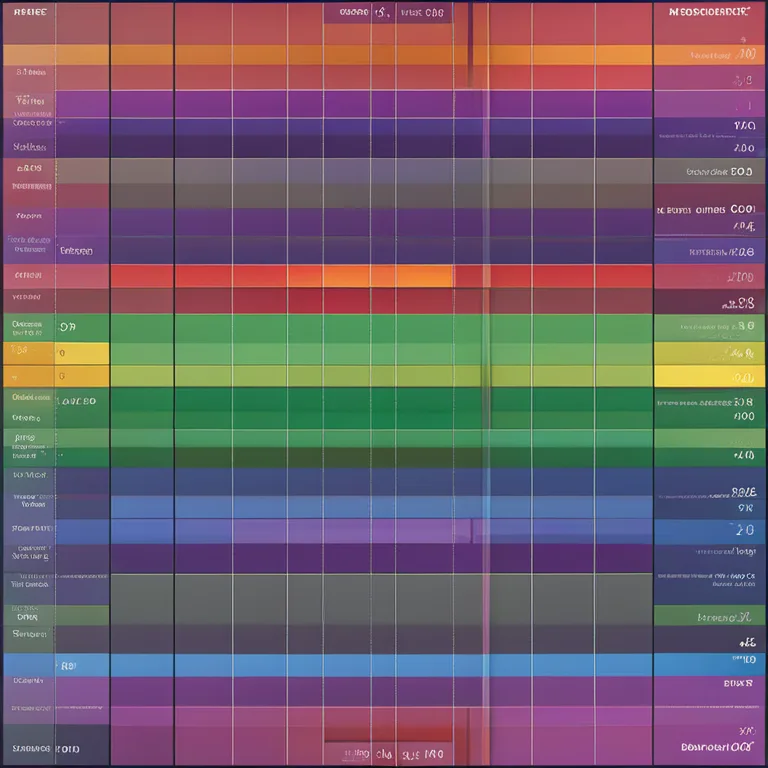
Biorhythm Compatibility: Personal Harmony Decoded
Discover how biorhythm compatibility influences personal relationships and the synergy between individuals based on biological cycles.
article by Adrian Wallace
Introduction to Biorhythm Compatibility
Biorhythm theory presents an intriguing pseudoscientific concept that suggests our daily lives are influenced by rhythmic biological cycles. It claims to predict various aspects of an individual's life through simple mathematical cycles. Biorhythm compatibility, a less known facet of this theory, examines the synchronization of these cycles between individuals, proposing that our interactions and relationships are impacted by the harmony or discord of our intrinsic biological rhythms.

Understanding the Biorhythmic Cycles
At the core of biorhythm theory are three primary cycles: physical, emotional, and intellectual. Each cycle is thought to move through high, low, and critical phases in a fixed pattern. The physical biorhythm, with a 23-day cycle, influences strength, health, and stamina. The emotional cycle, running a 28-day course, affects mood, creativity, and perception of relationships, while the 33-day intellectual cycle is said to govern reasoning abilities, alertness, and logical faculties. By evaluating these cycles, enthusiasts believe it is possible to anticipate the interplay of energies in interpersonal connections.

Computation of Biorhythm Compatibility
Computing biorhythm compatibility involves calculating the cycles of each individual and then analyzing the degree of alignment between them. The premise is that when two people's biorhythms are in sync, they are more likely to experience a harmonious relationship. Conversely, out-of-sync biorhythms might lead to conflicts or misunderstandings. Compatibility calculations often employ software or online tools to illustrate the convergences and divergences of these cycles graphically.

Applications in Relationships
Biorhythm compatibility draws interest from those looking to deepen connections in romantic, professional, or platonic relationships. Devotees use this system to choose auspicious dates for significant events, to resolve interpersonal issues, or simply to select the best times for collaboration. While there is no scientific evidence supporting these claims, the concept continues to fascinate a niche audience that finds value in such synchronization.

Critical Views and Considerations
While biorhythm compatibility has its proponents, it is also met with skepticism. Critics dismiss biorhythm theory due to the lack of empirical research and reproducible results. They caution that any positive experiences may be the result of the placebo effect or confirmation bias. As with any belief system that falls outside the scientific mainstream, it is essential to approach biorhythm compatibility with an open yet critical mind, recognizing it as a personal belief rather than an empirical truth.
Future of Biorhythm Studies
As we look toward the future, the intersection of technology with concepts like biorhythm compatibility is inevitable. Advances in personal data tracking and AI could contribute to more sophisticated and personalized biorhythm analysis. However, the ethical implications of such advancements and their legitimacy within the scientific community will continue to be subjects of debate as we navigate the integration of ancient wisdom with modern technology.
Published: 12/28/2023
Modified: 12/28/2023
More predictions
Come back here soon to learn more about yourself and your future


Exploring Human Biorhythmic Cycles
Explore the fascinating concept of biorhythms and their influence on physical, emotional, and intellectual faculties in humans.


The Reality Of Biorhythm Compatibility
Unravel the truth behind biorhythm compatibility and its role in personal relationships and daily life.


Biorhythm Wheel: Unlocking The Secrets
Explore the intriguing world of the biorhythm wheel to understand your physical, emotional, and intellectual cycles for enhanced well-being.